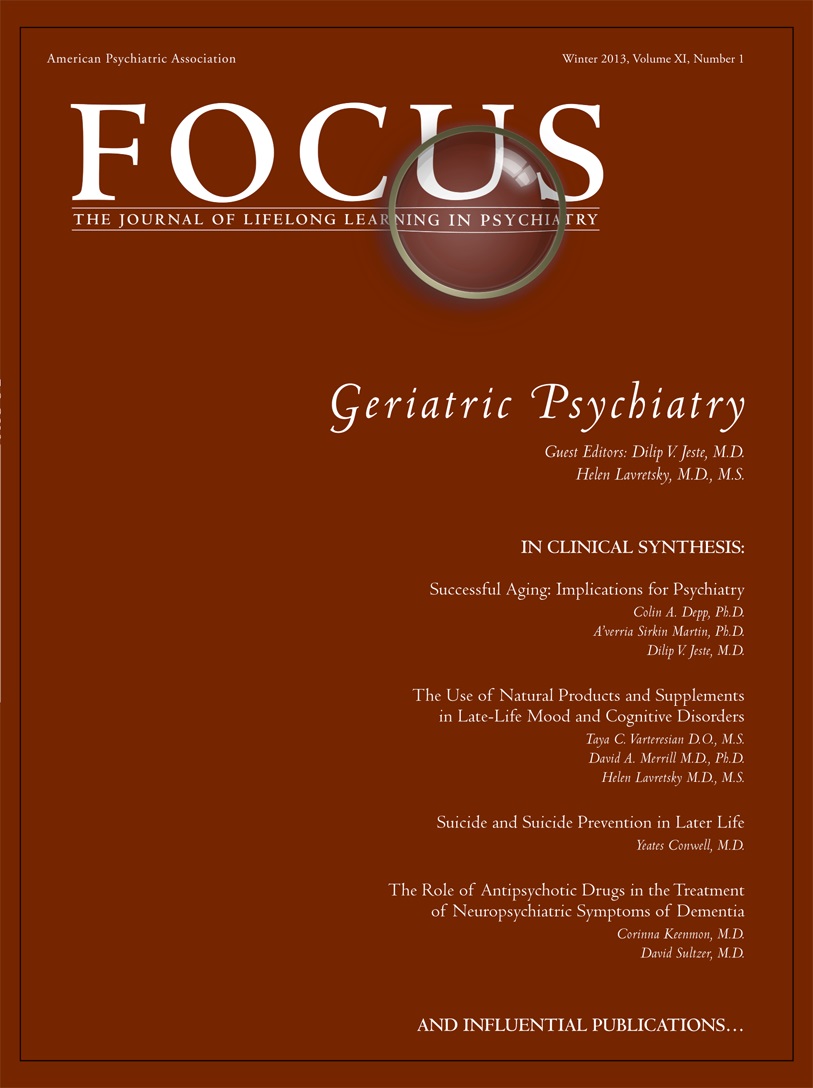Successful Aging: Implications for Psychiatry
Abstract
Aging may be the number one public health issue facing the world today. With the growth in the aging population, there has been an expansion in initiatives and interventions to promote successful aging and to reduce disparities in attaining maximum healthy life expectancy. There will be a corresponding increase in absolute number of older adults who have mental illness, and there are a number of points of intersection between psychiatry and successful aging. We review recent research in defining successful aging in people with and without mental illnesses. We also highlight current literature on genetic, molecular, neurobiological, psychosocial, and social determinants of successful aging. Finally, we summarize the evidence for interventions that may increase the likelihood of successful aging, particularly physical activity and exercise, nutrition and diet, cognition and memory, and social and psychological interventions.



